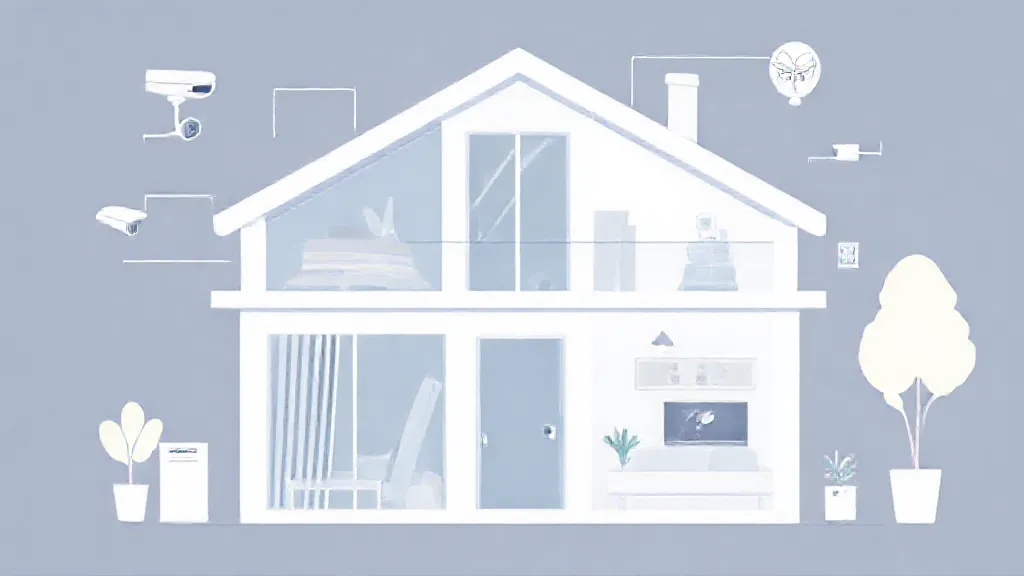The concept of smart homes has rapidly evolved in recent years, integrating advanced technologies to improve various aspects of daily living, particularly in the realm of security. Smart home security systems leverage the Internet of Things (IoT) to create interconnected devices that can monitor, control, and enhance the safety of a household. This article delves deep into how smart homes can significantly enhance security, examining various technologies, their benefits, and practical applications.
Understanding Smart Home Security
Smart home security encompasses a range of devices and systems designed to protect homes from intrusions and other threats. These include smart locks, security cameras, motion detectors, alarms, and environmental sensors that can alert homeowners to dangers such as fire, carbon monoxide, or flooding. The integration of these devices allows for real-time monitoring and control, enabling homeowners to maintain a vigilant watch over their property, even when they are away.
The Role of Surveillance Cameras
One of the most significant advancements in smart home security is the use of surveillance cameras. Modern smart cameras come equipped with features such as high-definition video, night vision, and motion detection. They can send alerts to homeowners' smartphones when unusual activity is detected, allowing for immediate action.
Additionally, many cameras offer cloud storage options, enabling users to review footage from any time, which can be invaluable for law enforcement investigations or insurance claims.
Smart Locks for Enhanced Access Control
Smart locks represent another critical component of smart home security. These locks can be controlled remotely via smartphones, allowing homeowners to lock or unlock their doors from anywhere.
Many smart locks also feature keyless entry options, such as biometric scanners or numerical keypads, which eliminate the need for traditional keys that can be lost or stolen. Furthermore, some systems allow homeowners to grant temporary access to guests or service providers, enhancing convenience without compromising security.
Alarm Systems with Real-Time Notifications
Advanced alarm systems integrated into smart homes provide real-time notifications to homeowners when a breach is detected.
These systems can be programmed to send alerts via text or app notifications, ensuring that homeowners are informed of potential threats instantly. Additionally, many smart alarm systems can be connected to local authorities, allowing for quicker response times in emergencies. This integration not only enhances safety but also provides peace of mind for homeowners.
Environmental Sensors for Comprehensive Safety
In addition to traditional security measures, smart homes can include environmental sensors that monitor for hazards such as smoke, carbon monoxide, and water leaks. These sensors can alert homeowners to dangers that may not be directly related to intrusions but are equally critical for safety. For example, a water leak sensor can prevent significant damage and costly repairs by alerting homeowners before the situation escalates.
The Importance of Integration and Automation
The true power of smart home security lies in the integration and automation of various devices. Homeowners can create customized security routines that suit their lifestyles, such as automatically locking doors at night or turning on outdoor lights when motion is detected. This level of automation not only enhances security but also contributes to energy efficiency and convenience, as devices can work together to create a cohesive safety net.
Challenges and Considerations
While the benefits of smart home security are numerous, there are also challenges and considerations to keep in mind. Cybersecurity is a significant concern, as connected devices can be vulnerable to hacking. Homeowners must ensure that their networks are secure and that devices are regularly updated to protect against potential threats.
Additionally, the initial investment in smart home technology can be substantial, though many find the long-term benefits outweigh the costs.
The Future of Smart Home Security
As technology continues to advance, the future of smart home security looks promising. Innovations such as artificial intelligence and machine learning are beginning to play a role in enhancing security systems, allowing for more sophisticated threat detection and response capabilities.
As more homeowners adopt smart technologies, the market for smart home security will likely expand, providing even more options for consumers seeking to enhance their home safety.
In conclusion, smart homes represent a significant leap forward in home security, combining advanced technology with convenience and efficiency. By integrating various devices and systems, homeowners can create a comprehensive security solution that not only protects their property but also enhances their overall quality of life.
As the technology continues to evolve, the potential for smarter, safer homes will only increase, making it an exciting area to watch for future developments.
